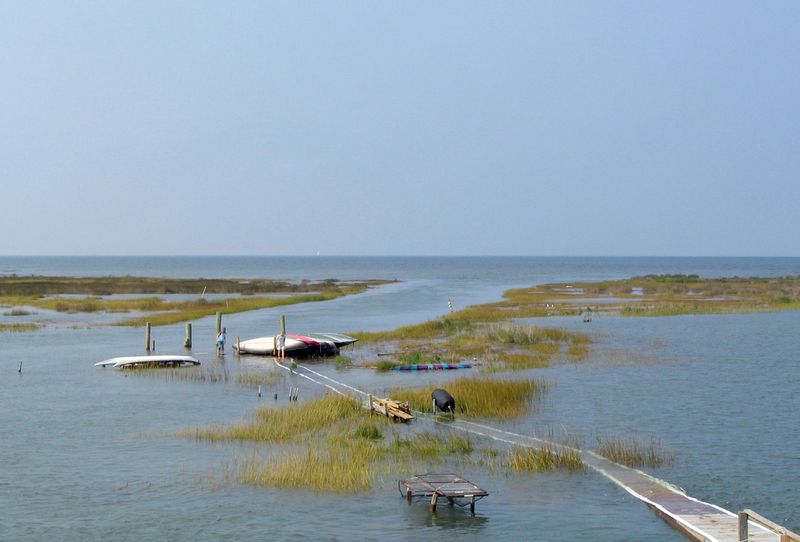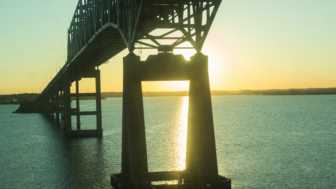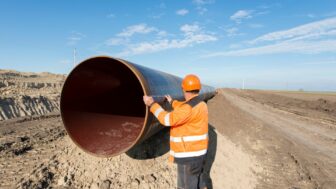On the Heels of Massive Fracked-Gas Pipeline Shutdowns Nationally, Hogan Administration Considering Approval for a New Pipeline down the Eastern Shore of Maryland
SALISBURY, MD — Today, dozens of organizations and Maryland residents are speaking out against the proposed Eastern Shore Pipeline as the Hogan Administration holds a key virtual hearing on the project beginning at 6:00pm.
The Eastern Shore Natural Gas Company (ESNG) wants to build 19+ miles of new pipeline to carry fracked gas from Delaware through Maryland, to connect with another fracked-gas pipeline proposed by the Chesapeake Utilities that would bring fracked gas to the University of Maryland Eastern Shore (UMES) and the Eastern Correctional Institution. These two proposed pipelines would threaten the region’s ecosystems and drinking water supplies, and could cause irreparable damage to the land and climate.
“The era of fossil fuels is over,” said Anthony Field, Maryland Grassroots Organizer at the Chesapeake Climate Action Network. “We simply cannot be building new infrastructure for toxic methane gas. Eastern Shore officials should promote the speedy development of clean energy sources like offshore wind instead.”
This hearing comes just after two massive national fracked-gas pipelines were cancelled or ordered to shut down. Companies behind the proposed Atlantic Coast Pipeline cancelled the project due to ballooning costs and legal uncertainties. And the Dakota Access pipeline was ordered to shut down for an environmental review. Meanwhile, in late June, the fracking giant Chesapeake Energy filed for bankruptcy. These setbacks for the industry demonstrate that fracking is a risky investment, for the climate, the environment, and the economy.
Today’s hearing, held by the Maryland Department of Environment (MDE), is on the Wetland and Waterways permit on the Del-Mar pipeline proposed by ESNG. The pipeline is already under construction in Delaware to carry gas from that state into Maryland. The seven miles of pipeline proposed for Maryland would supply concentrated animal feeding operations, businesses, and residential areas. The two “anchor” customers for gas delivery are the Eastern Correctional Institute (ECI) and the University of Maryland Eastern Shore (UMES) in Somerset County. If built, the Del-Mar pipeline would trigger the second pipeline proposed by Chesapeake Utilities connecting the prison to the university. The installation of the Del-Mar pipeline will impact 1,239 square feet of streams and more than 16,000 square feet of wetlands. It’s anticipated to come online in late 2021.
“With clean, renewable energy affordable and abundant right now, it makes no sense for the state to commit to burning dangerous fracked gas at ECI’s power plant,” said Susan Olsen, Chair of the Sierra Club’s Lower Eastern Shore Group. “Marylanders overwhelmingly prefer investing in clean energy solutions instead of committing to decades of dependence on fracked gas. At a time when Maryland is considering major budget cuts, we should not waste money on climate-disrupting fossil fuel projects.”
These two pipelines are part of the Hogan Administration’s plans to spend $103 million massively increasing fracked-gas pipelines and infrastructure in the state. This includes $30.3 million administered by the Maryland Energy Administration’s (MEA) new Maryland Gas Expansion Fund “for the expansion of natural gas infrastructure.” The remaining $70 million is recoverable from MD ratepayers. Read more about it here.
Contact: Denise Robbins, denise@chesapeakeclimate.org, 240-630-1889
###
The Chesapeake Climate Action Network is the first grassroots organization dedicated exclusively to raising awareness about the impacts and solutions associated with global warming in the Chesapeake Bay region. For 17 years, CCAN has been at the center of the fight for clean energy and wise climate policy in Maryland, Virginia, and Washington, D.C.






